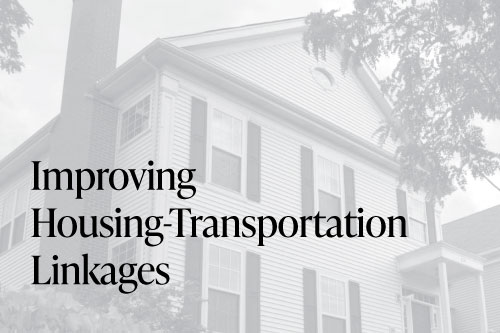Improving Housing-Transportation Linkages

Learning from listening sessions in Atlanta and Minneapolis-St. Paul
On March 26, 2010, MPC joined representatives from the Center for Housing Policy, Atlanta Neighborhood Development Partnership, Inc. and ULI Minnesota in Live at the Forum to discuss recent listening sessions MPC and the Center convened in Minneapolis-St. Paul, Minn., and Atlanta, Ga.. These discussions focused on the challenges and opportunities related to coordinating housing and transportation investments.
This document summarizes best practices and key challenges raised by participants and summarizes policy advances that have begun addressing those issues, including the federal Sustainable Communities Partnership. This piece also highlights upcoming opportunities, including the Livable Communities Act and upcoming federal transportation authorization.
Audio from the conference call can be accessed here.
Two additional publications came out of the listening sessions:
• How Transportation Reform Could Increase the Availability of Housing Affordable to Families with a Mix of Incomes Near Public Transit, Job Centers, and Other Essential Destinations, explains how reauthorization of the federal transportation bill can incent the improved coordination of transportation, housing and land use policy to ensure that families across a range of incomes have access to affordable housing as well as efficient, accessible transportation options.
• Regional Coordination in Atlanta Metro and in the Twin Cities: Understanding the Challenges and Opportunities of Coordinating Housing, Transportation and Workforce Policies, draws from the discussions held during the listening sessions and the information you shared about the experience of coordinating land-use, transportation, and workforce policy in the Atlanta and the Twin Cities regions.
Please visit Live at the Forum to hear and read more about lessons learned in Chicago, Atlanta and Minneapolis.
Click here for a summary of the events.
The Metropolitan Planning Council and Center for Housing Policy are grateful to the Surdna Foundation for its support of this work.